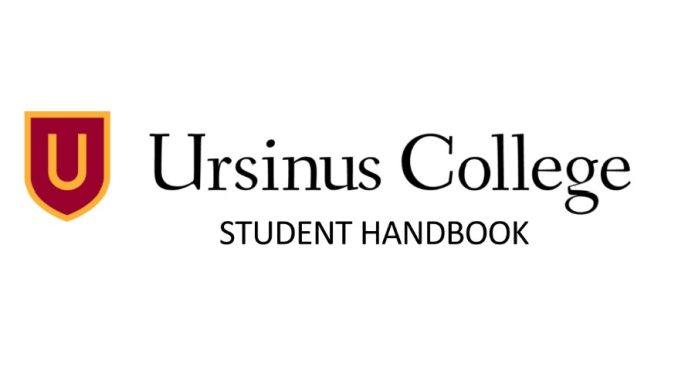
Details
Article by Kathy Logan <kalogan@ursinus.edu>
*This article has been corrected to accurately describe the new Good Samaritan policy (9/25/2023)*
The Ursinus Student Handbook provides every student with an outline of the rules and regulations that they must follow while they attend the school. Most students are broadly aware of what rules are contained in the handbook and don’t bother to reread the handbooks that come out each year. However, news of a changed policy has been circulating in the Ursinus student body. That policy is the Good Samaritan policy.
The change in the Good Samaritan Policy has garnered confused reactions from students who do not understand what this new policy means and how it affects the way they socialize on Ursinus campus. The main difference between the Good Samaritan policy between the student handbook of ’22 -’23 and ’23-’24 is how the policy impacts who is responsible in cases of medical emergency due to over-intoxication at registered events. The ‘22-’23 handbook says, “In circumstances where a student or organization is found to be hosting a registered event where medical assistance is sought for an intoxicated guest, the host(s) may be held responsible for violations of the Code of Conduct” (Ursinus College). In contrast, the ‘23 – ‘24 handbook states, “In circumstances where a student or organization is found to be hosting a registered event where medical assistance is sought for an intoxicated guest, and the hosting organization or student contributed to the needed medical assistance, the hosting organization or student(s) may be held responsible for violations of the Code of Conduct” (Ursinus College). *The change is that if the hosting organization or hosting student calls medical attention to intoxicated guests, they could get in trouble if an investigation finds them to be at fault.*
Students may not be aware of this important change as students sometimes do not take the time to read the updated student handbooks. As such, Dr. Lynne Edwards and her MCS capstone class have decided to investigate how much of the student body knows about this Good Samaritan Policy change and conducted a poll for students to answer. To do this, the class split off into pairs and went to different locations on Ursinus campus to poll responses from at least 10 students. The locations were picked because they are where many Ursinus students go to hang out or do work. These locations ranged from the Commons, IDC, Library, and Wismer. The students were tasked with asking six specific questions to get the results they needed. The questions were as follows, “Have you heard of the Good Samaritan Law? Do you think Ursinus should have a good Samaritan Law Policy? Would you be surprised that Ursinus does have a Good Samaritan policy? Did you know that Ursinus recently changed its Good Samaritan policy? What year are you? Do you host events on Campus?” In the end, the students put their results together and gathered responses from 95 students.
What follows are the results of Dr. Edward’s class polls. The sample size was 95 (N=95). Most of the respondents 69/95 were upperclassmen (juniors and seniors) and had hosted an event on campus at some point (69.5%).
- A majority of respondents (86%) have heard of Good Samaritan laws.
- A vast majority of respondents (92.6%) think that Ursinus should have a Good Samaritan policy.
- A. Less than half of respondents (41%) were aware that Ursinus has a Good Samaritan policy.
3) B. Less than half of respondents (44%) said they would be surprised to learn that
Ursinus has a Good Samaritan policy.
- A little over half of the respondents (52%) were aware that Ursinus changed its Good Samaritan policy.
- A little over a third of respondents (33.7%) were unaware that Ursinus recently changed its Good Samaritan policy.
- 75% of respondents who identified as event hosts (n=28) were aware of the policy changes. [chart4]
- Non-event hosts (n=66), however, were more narrowly split with 47% aware of policy changes and 44% unaware of these changes.[chart 5]
From these results, we can conclude that a little more than half of the student body knows and is aware of the Good Samaritan policy, however, the majority of this percentage of students are upperclassmen who regularly host. This means that the less than half that aren’t aware of the policy and unaware of the changes are underclassmen who do not host but attend hosted events. Students should make sure to read the updated Student Handbooks so they can be aware of any changes to rules or policies that involve going to hosted events.
